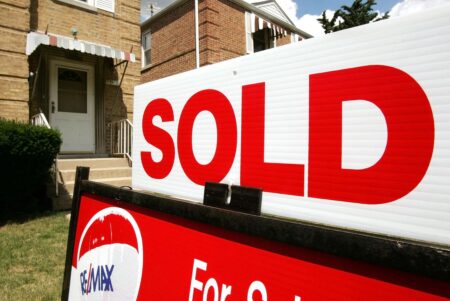As a homeowner, there’s no doubt that you’ve lovingly maintained the home – both for yourself and as you considered resale value. And now that you’re about to actually sell the home, it’s understandable that you want to be compensated for your efforts. Your home also holds a lot of memories– and if you’re not careful, you’ll end up projecting your sentimental value into the home’s selling price. That’s why you need to check your feelings at the door when you put your home on the market.
According to broker Kimberly Jay at Compass in New York, NY, positive memories and sentimental value may lead to sellers overpricing their homes. “Buyers do not have the history or connection you do, and likely do not feel the same way about your home.” She says you can take your memories with you, but warns against pricing your experiences into the listing price.
And even if you’ve made changes and upgrades, the house may not be worth as much as you think. “Sellers seem to think that their home is the most beautiful of all – and they’ve lived in it for years, and it is beautiful to them,” explains broker Dorothy Schrager of Coldwell Banker Warburg in New York, NY.
But everyone has different tastes, and buyers may not necessarily value the same features. “It’s important to think about your home in a less personal way: you need to start thinking of it as an asset that you are selling, and you must take your personal feelings out of the picture, because it’s a business deal,” Schrager says.
These are some of the dangers of overpricing your home.
It May Languish on the Market
“Overpricing a home can result in it staying on the market much longer than it should before acquiring an offer,” warns Patrick Garrett, broker/owner at H & H Realty in Trussville, AL. You may be thinking, “Well, I know what my home is worth, and I’m willing to wait on the right buyer.” But that’s not usually how the market works.
According to Vickey Barron, a realtor at Compass in New York, NY, the most effective time to sell a home is when it is first listed on the market. “If the home is overpriced, it will deter people from coming for those impactful initial showings,” she explains, adding that there is never a market for overpriced homes.
It’s a view shared by agent Jane Katz of Coldwell Banker Warburg in New York, NY, who warns that overpricing and aspirational pricing are never good strategies. “As a new listing, the seller has a small window of time which can be considered the honeymoon period for the listing, and during this time, all eyes are on the listing, and it captures the most attention and excitement.”
It’s a Waste of Time
And here’s another reason to avoid jacking up the price of your house. “Overpricing a home is usually a waste of time and resources for the listing agent and the home seller,” says Garrett. Selling your home requires a lot of prep work, which can range from marketing to open houses and showings, not to mention having to keep your home meticulously clean, and leave the house when potential buyers arrive, etc. However, you’re doing all of this in vain if no one is seriously interested in the home.
In fact, Christy Walker, broker/owner at RE/MAX Signature in Phoenix, AZ, tells us it’s an industry joke that sellers see their home as a million-dollar mansion while the appraiser sees it as upper middle class and the buyer sees it as a fixer upper. “Perspective plays a huge role in what a buyer is willing to pay, and with rising interest rates, most buyers are getting savvy enough to compete for the homes that are worth it to them, but to pass on anything overpriced just because a seller thinks they can get top dollar in this market.”
You’ll Lose Potential Buyers
As a general rule, overpricing your home may lead to buyers not even considering it. Walker says that pricing on the high side should only be considered – even in a strong seller’s market – when the seller is willing to be patient with the days on market it may take to sell. (And she notes that the home should be in pristine condition and staged appropriately.) “However, this method should only be used when there is very little direct competition, or the home is fairly unique.”
But Walker admits that pricing high will probably eliminate many buyers. For example, buyers who search for homes in a particular price range won’t even see it, because the house is outside of their price parameters.
“Also, it may remove qualified buyers from competing for the home because it is already priced on the high side of their budget.” In addition, Walker says some buyers will assume that in a multiple offer scenario, they would need to bid more. “So, they don’t even bother if the home is already at the very top of their price range.”
You may be thinking that you can overprice the home, and then the price will be negotiated down. But this doesn’t always happen. According to Katz, if the buyer’s offer number and your asking price are too far apart, they won’t even make an offer.
The Appraisal Won’t Back You Up
Let’s say you overpriced the home and someone wants to purchase it. Whoo-hoo . . . but don’t pop the cork on that champagne too soon. “Be advised that the property may not appraise at the listed value – even if a buyer puts in an offer at the overpriced amount,” warns Garrett. So, if your asking price is $500,000 and your home only appraises for $450,000, the buyer’s lender is only going to loan them $450,00, they would need to come up with the additional $50,000 on their own.
“From the mortgage perspective, it is important to make sure that your sales price is reflective of and supported by comps in the neighborhood for previously sold and closed listings,” says Sarah Alvarez, regional vice president of mortgage banking at William Raveis Mortgage in New York, NY.
And even if your next-door neighbor listed their home at an aspirational price does not mean that all of a sudden, the value of your home shot up overnight. Alvarez says that once the neighbor’s house is a recorded sale, it will be a much more realistic and accurate price.
There’s a reason why selling your home is so different from other types of business transactions. Agent Kate Wollman-Mahan of Coldwell Banker Warburg in New York, NY, tells us that most sellers are unwitting victims of what psychologists call the Endowment Effect. “This means they tend to overvalue their own home simply because the home belongs to them,” she explains. “An identical home down the block would, to these sellers, be worth less.” So, make sure that the Endowment Effect doesn’t cloud your thinking when pricing your home.
Buyers are Wary
It’s not only the price of an overpriced home that turns buyers off. There’s also another negative component that kicks in. “After a property has been on the market for an extended period, it may become stigmatized due to the perception of potential buyers thinking something is wrong with it,” warns Garrett.
Katz agrees, and says if your listing just sits there and accumulates days on the market, it will not be a good look. “Buyers will begin to think something’s wrong with the home, and the listing won’t be considered ‘hot’ or desirable, even if it’s a great property – and to quote Barbara Corcoran, ‘Nobody wants what nobody wants.’” It’s also interesting to note that buyers won’t necessarily ask anyone what’s wrong with the home. They’ll just assume that something is indeed wrong, and will skip over the property and view more recent listings.
The Home May Sell for Less
And finally, as a result of pricing your home too high, and being on the market for too long, Garrett says it may lead to a self-defeating conclusion. “The seller risks having to accept less than market value if the property stays at the overpriced list amount for an extended period,” he says. Note that he didn’t say, “less than you wanted.” No, the desire to overprice the home could lead to it being sold for less than market value.
In Summary: Don’t Risk It
Admittedly, pricing your home can be an emotional decision, but don’t give in to that emotional pull. “While your home certainly has unique features that may well give it a boost in value, ultimately it is a commodity,” says Bret Ceren, realtor at Platinum Living Realty in Scottsdale, AZ. As such, he says it will only sell for what the market will bear. “A good agent can help get a premium if it is well-marketed and they negotiate strongly on your behalf, but memories made in the home are not taken into consideration at all by the marketplace – and all of those beautiful features may not make a difference either.”
In addition, buyers have become savvier. “They have access to so much information, and they know what range the listing price should be,” explains agent Dorothy Salisbury at Coldwell Banker Warburg in New York, NY. When you are preparing to list your home, she says you have one chance to launch it and price it right. “If it is priced correctly, you will get an offer or even multiple offers, but if you overprice your home, the market will tell you by lack of showings.” And at that point, your home has lost momentum and you can end up in a precarious position.
Read the full article here













